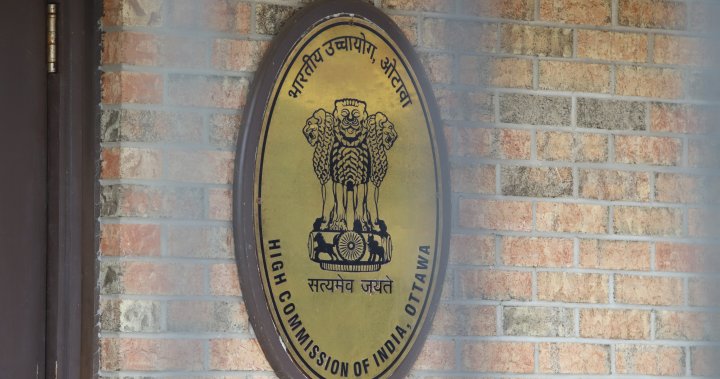The last time Rohit visited his parents, both in their 70s, in Mumbai, India, was December 2019.
A global pandemic and nearly four years later, the Toronto resident was excited about his upcoming trip this year. He had booked tickets for his entire family, which includes his wife and daughter, and was sure of his travel plans, until Thursday morning.
Diplomatic tensions between Ottawa and New Delhi reached new highs Thursday after India halted visa services in Canada. The news was first shared as a notice on the BLS Indian Visa Application Center’s website. BLS is the agency that processes visa requests for India.
“Important notice from Indian Mission: Due to operational reasons, with effect from 21 Sept. Indian visa services have been suspended till further notice,” it said.
For Rohit, who Global News is identifying only by his first name out of concerns that sharing his worries could impact his application for travel documents, this means he may not be able to see his ageing parents this year.
“This came out of the blue,” he said. “It totally took me by surprise.”
BLS processes many kinds of Indian visas, including visitor visas and Overseas Citizen of India (OCI) cards, for Canadians. Visitor visas are necessary for people without an Indian passport to travel to India. The Indian Ministry of External Affairs describes the OCI Card as a “multiple entry life-long multi-purpose visa which enables the holder to travel and stay in India, as and when he/she desires to do so.”

This is the latest diplomatic escalation between India and Canada since Prime Minister Justin Trudeau rose in the House of Commons on Monday and announced that there was “credible” evidence of “potential links” between agents of the Indian government and the murder of B.C. Sikh leader Hardeep Singh Nijjar in June.
Manan Gupta, an immigration consultant with Skylake Immigration in Brampton, said the latest round of tensions between both governments is not sitting well with the Indian diaspora in Canada.
“This is causing a lot of extra disruption and discomfort,” he said.
Many Canadian citizens still have close family members who live in India. “This is going to hit a lot of people very close to home,” Gupta said. “It will affect common people.”
Radhika Ichhpuniani, an immigration consultant with Homeport Immigration based in Moncton, N.B., said it is unclear if this restriction only applies to visitor and other visas for Canadians, or if it extends to OCI cards as well.
Ichhpuniani said she expects people will be calling up the Indian high commission to get some clarity.
“Many Canadian citizens (of Indian origin) already have OCI cards, so their travel plans will likely be unaffected. But if the visa suspensions extends to OCI cards, it will mean that new OCI cards may not be processed for some time.”
There is no restriction on travel for anyone with an Indian passport, which includes permanent residents, work permit holders and international students in Canada.

While Trudeau has sought to cool tensions by saying Canada does not intend to “provoke” India, some immigration consultants are worried that this could devolve into a diplomatic tit-for-tat.
“If Canada reciprocates in the same way India has [on visas], the impact is going to be exponential,” Ichhpuniani said.
Toronto immigration lawyer Guidy Mamann said, “Right now, every minute of every day, there is an Indian national here on a study permit, a visitor permit or a work permit that is expiring and they have to submit an application.”
Mamann cited Indian nationals who may not get work permits extended, or could have to leave their jobs in Canada, take their kids out of school and return to India.
“That’s the anxiety that they’re feeling right now. And somebody has to come up right to the camera and say, listen, everything is normal.”

Canada is currently home to around 800,000 international students, the bulk of whom come from India.
“International students made up the majority (67 per cent) of graduates from college postgraduate programs in 2019, with Indian students accounting for more than half (53 per cent) of graduates,” a Statistics Canada report said.
Since Trudeau’s shock announcement in the House of Commons on Monday, Gupta says he has been fielding constant phone calls from Indian parents.
“I’m getting frantic calls from parents in India. Some of them have children studying in Canada, others are about to send their kids here soon,” he said. “They are all asking me if they should be sending their children to Canada after this latest round of tensions.”
Ichhpuniani said while there may be a dip in interest in Canada as a destination for immigration and education in the short term, many are likely to take the long view and hope the storm blows over.
In the long term, she expects the immigration troubles to stabilize.
“It is too material and revenue-based for any government to play around with that,” she said.
© 2023 Global News, a division of Corus Entertainment Inc.




